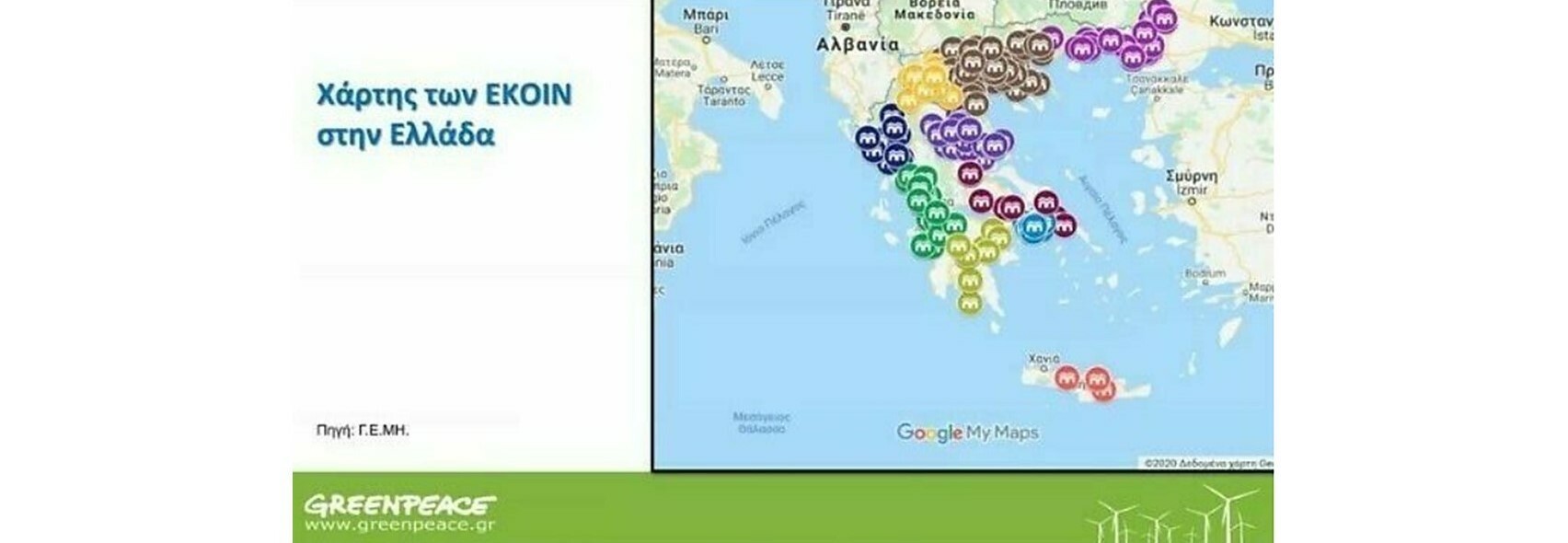Press
Greek energy communities at risk: urgent action needed
Brussels, 4 February 2021 - Today, REScoop.eu, together with Greenpeace Greece, WWF Greece, Electra Energy published a report [1] calling on the Greek government to change the institutional framework in order to support the development of Energy Communities in Greece.
In 2019, the EU agreed on a new energy rulebook - called the Clean energy for all Europeans Package – to help meet its 2030 climate and energy objectives. This legislative package marked a strong shift towards the recognition of the environmental, economic and social benefits citizens and energy communities could contribute in transitioning away from fossil fuels.
Although Greece was widely praised with its innovative introduction of energy communities into its national law, the situation has changed. Recent developments on the framework of energy communities in Greece [2] threatens their existence and development and, thus, the participation of citizens in the energy transition.
Dimitris Kitsikopoulos from Electra Energy Cooperative, states his concerns: “Recent legislative developments clearly illustrate that the Government fails to acknowledge the special characteristics and benefits of Energy Communities. We are concerned that this will weaken the existing ecosystem of authentic energy communities, it will discourage further initiatives from local communities, and more broadly it will hinder our national efforts towards energy democratization".

Equal market participation?
The problems are manifold, from costly, complex administrative procedures and lack of funding to private investors hijacking the vehicle of energy communities. The latter resulted in the Ministry of Energy and Environment taking back the incentives being granted to energy communities. As of 2022 all energy communities (without an exemption) are to compete with private investors in bids to ensure operational reinforcement for renewable energy projects.
“By sending all to auctions to compete for a bidding price the government has effectively sealed the fate of energy communities in Greece. The political leadership ought to defend the right of citizens to energy democracy, not justify those who want the market as a private lounge for just a few players,” says Takis Grigoriou, Climate and Energy campaigner with Greenpeace Greece.
These adjustments are neither consistent with the Greek National Energy and Climate plan, nor with EU legislation, which specifies that Member States should provide an enabling framework to promote and facilitate the development of Renewable Energy Communities and Citizen Energy Communities [3]. They should be able to compete on an equal level playing field with other energy market actors. “Therefore”, states Dimitris Tsekeris, Energy Policy Officer from WWF Greece, "the government must withdraw from those legislative actions and at the same time strengthen the Energy Communities framework together with adequate financial tools, in order for the country to keep the pace in line with the requirements of science and the European reality.”
Dirk Vansintjan, president of REScoop.eu urges all Member States to draw lessons from the challenges encountered in Greece:
"The problems the energy communities face in Greece should not be overlooked. Their unique characteristics, the benefits they bring forward compared to regular RES projects and their future potential should be taken into consideration for the development of an enabling framework that will promote their development. Moving forward, Greece and all Member States should transpose the European Directives on time and identify concrete measures to make sure that energy communities receive adequate support to be able to participate in the energy market equally with the other market players without discrimination".
*** ENDS ***
Notes to editors:
[1] REScoop.eu, together with Greenpeace Greece, WWF Greece and Electra Energy published a report on the Development of energy communities in Greece, highlighting challenges and recommendations. Find the executive summary (in English) and full report (in Greek) here.
[2] Law 4759/2020 (Article 160, par.)
[3] Directive (EU) 2018/2001 of the European Parliament and of the Council of 11 December 2018 on the
promotion of the use of energy from renewable sources (recast), OJ L 328, 21.12.2018, p 82 (REDII).
Contact
For more information, please contact Stavroula Pappa - stavroula.pappa@rescoop.eu
For media inquiries, please contact Sara Tachelet - sara.tachelet@rescoop.eu